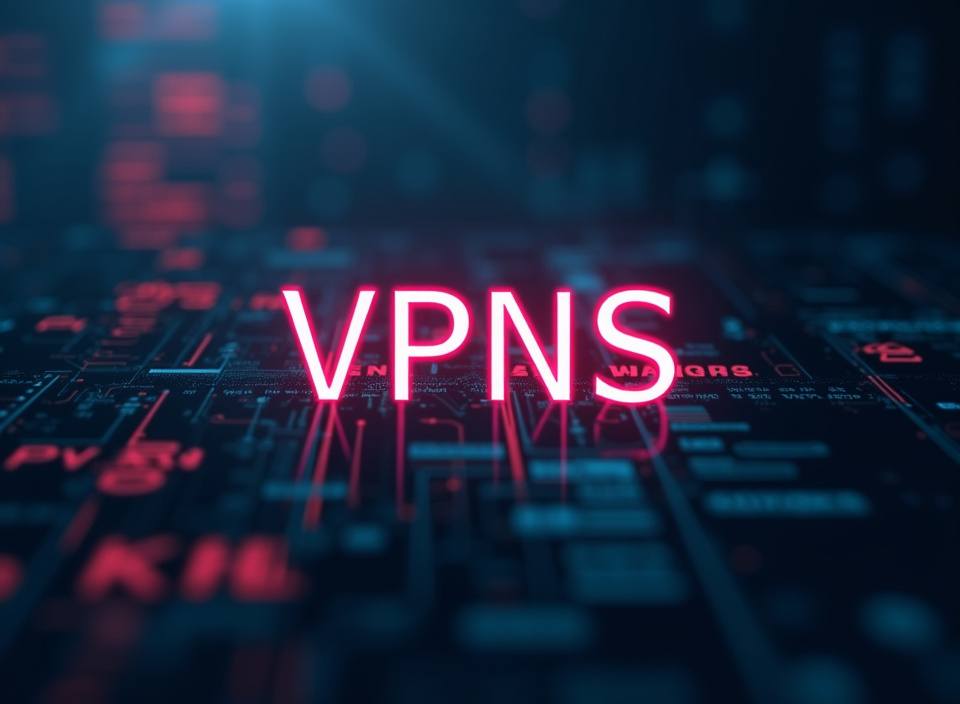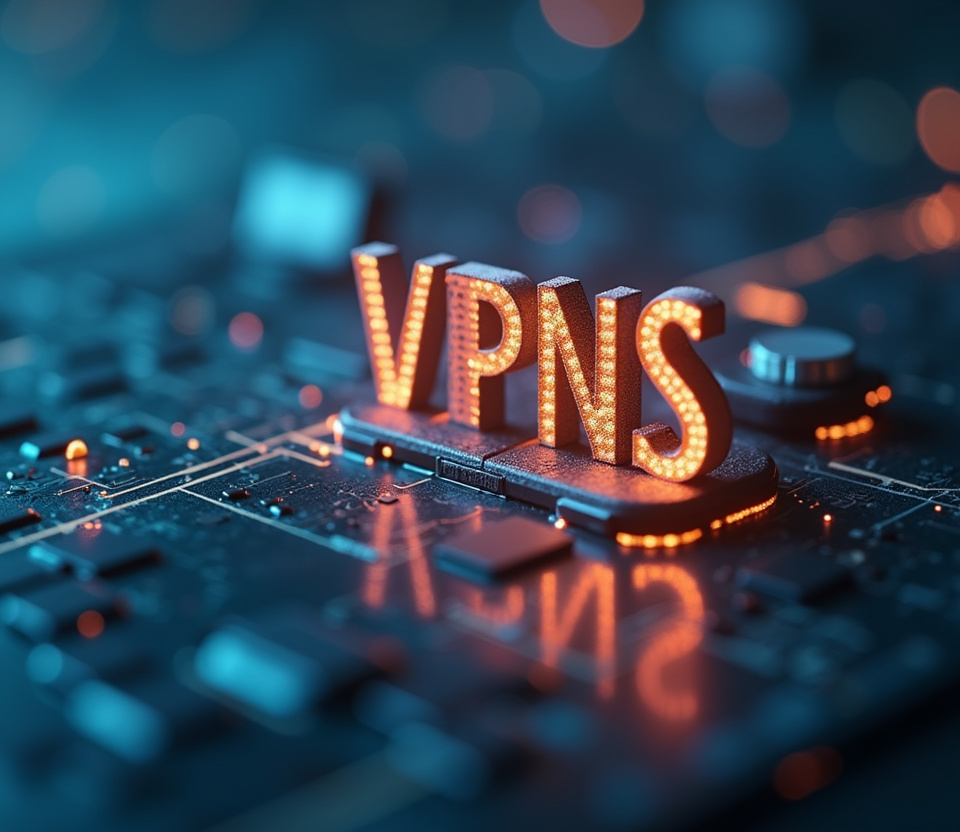VPNs in the Automotive Industry: Protecting Design Innovations

Table of Contents
automotive VPN
The automotive industry, a dynamic arena of innovation where cutting-edge design and technological prowess converge, faces an unprecedented surge in cybersecurity threats. This article delves into the crucial role of Virtual Private Networks (VPNs) in safeguarding design innovations within this sector. From revolutionary electric vehicle architectures to intricately coded autonomous driving systems, the digital blueprints shaping the future of mobility are prime targets for malicious actors, rival corporations, and even nation-state espionage.
The confluence of connected vehicles, global collaborative design processes, and the industry's growing reliance on cloud-based infrastructure has dramatically expanded the attack surface, making robust data security measures not just advisable, but absolutely essential for survival and sustained competitive advantage. In this challenging landscape, the strategic implementation of an emerges as a vital security imperative, transcending its conventional role as a mere privacy tool and evolving into a cornerstone of a comprehensive cybersecurity strategy, providing a critical shield against a constantly evolving threat landscape. An operates by establishing a secure, encrypted tunnel through which all data transmitted across various networks flows.
This encrypted tunnel acts as a protective barrier, effectively preventing eavesdropping, malicious data interception, and any form of unauthorized access to highly sensitive design information, manufacturing processes, and strategic corporate communications. Within the highly competitive automotive sector, the stakes associated with data breaches are extraordinarily high. Imagine the catastrophic consequences of a successful cyberattack that leads to the theft of proprietary intellectual property.
Such a breach could translate into significant and immediate financial losses, create insurmountable competitive disadvantages in the market, and inflict irreparable damage on the brand's reputation, potentially eroding years of customer trust and carefully cultivated brand equity. Years of dedicated research and development, painstakingly crafted engineering plans that represent substantial investments, and groundbreaking design concepts that define the next generation of vehicles could all fall into the wrong hands. Therefore, prioritizing the implementation of robust measures, with the strategic deployment of VPNs at its core, becomes not merely a matter of adhering to industry best practices, but rather a fundamental business imperative that directly impacts the bottom line and long-term viability of the organization.
The vulnerabilities that automotive companies face are both numerous and multifaceted, spanning a wide range of potential attack vectors. Design engineers working remotely, often accessing highly sensitive data from potentially unsecured home or public Wi-Fi networks, represent a prime target for cybercriminals. Similarly, globally distributed design teams collaborating on intricate and complex projects, transmitting vast quantities of data across international borders with varying levels of cybersecurity infrastructure, are inherently exposed to potential interception and data breaches.
Even internal networks within secure automotive facilities, despite seemingly robust perimeter defenses, can be susceptible to insider threats, social engineering attacks, and malware infections that can compromise sensitive design resources. A robust and strategically implemented VPN solution effectively neutralizes these vulnerabilities by encrypting all mission-critical data traffic, thereby rendering it unreadable to unauthorized parties. It acts as a gatekeeper, controlling and monitoring all access points, and masking IP addresses to provide an additional layer of anonymity, making it significantly more difficult for attackers to identify and target specific individuals or systems.
Furthermore, a properly configured and maintained VPN can enable secure access to geographically restricted valuable data and resources, facilitating seamless and secure collaboration between international automotive design teams without compromising the essential principles of data confidentiality and integrity. The careful selection of an appropriate and reliable VPN solution requires a thorough and meticulous evaluation of several critical factors. The strength and type of encryption protocols offered by the VPN provider, the robustness and geographical distribution of its server infrastructure, the provider's data logging policies and commitment to user privacy, and the ease and seamlessness of integration of the VPN solution with existing IT security systems are all essential aspects to evaluate and consider when making a strategic VPN investment to ensure overall within the automotive sector.
data security
The concept of within the automotive sector transcends the simplistic notion of merely protecting design files; it encapsulates the entire data lifecycle of a vehicle, from its initial conceptualization to its eventual production, ongoing maintenance, and eventual decommissioning. Automotive companies are voracious collectors and processors of vast quantities of data, a torrent of information that includes sensitive customer personal data, detailed vehicle performance telemetry, complex supply chain logistics data, and proprietary financial records. Each of these critical data streams represents a potential vulnerability and a tempting target for exploitation, mandating a multi-layered and highly vigilant security approach to mitigate risk and maintain operational integrity.
Failure to adequately protect this sensitive data can lead to a cascade of severe and potentially crippling consequences, including significant regulatory fines imposed by government agencies, costly legal liabilities resulting from data breaches and privacy violations, and long-lasting and potentially irreparable damage to the company's brand reputation, eroding customer trust and impacting market share. The implementation of a reliable offers a crucial and indispensable layer of defense by providing robust encryption for data in transit, effectively preventing unauthorized access during transmission across networks. This capability is particularly vital for safeguarding data exchanged between different departments within the automotive company, facilitating secure communication between suppliers and manufacturers operating within a complex global supply chain, and protecting the sensitive data transmitted wirelessly between vehicles and cloud-based services, where vulnerabilities are often more prevalent.
Imagine a catastrophic scenario in which sensitive customer data, including credit card numbers, addresses, and personal identification information, is intercepted during transmission due to inadequate security measures. The potential exposure of individuals to identity theft, financial fraud, and other malicious activities could trigger a wave of lawsuits, regulatory investigations, and ultimately, catastrophic financial repercussions for the automotive company involved. Similarly, imagine if proprietary vehicle performance data, including detailed information about engine efficiency, autonomous driving algorithms, and advanced safety systems, is compromised and falls into the hands of competitors or malicious actors.
This stolen information could then be used to develop countermeasures, exploit vulnerabilities in existing vehicle models, or reverse engineer proprietary technology, resulting in significant competitive disadvantages for the affected automotive company. A well-implemented acts as a sophisticated and highly effective gatekeeper, meticulously controlling access to sensitive information and ensuring that only authorized personnel with appropriate credentials can gain access to critical data assets. By establishing a secure and encrypted tunnel for all communications, the VPN effectively protects data from potential eavesdropping, malicious tampering, and unauthorized access attempts, safeguarding the confidentiality, integrity, and availability of critical automotive data.
The robust encryption protocols employed by reputable VPN providers are specifically designed to withstand sophisticated cyberattacks, ensuring that data remains confidential and protected even in the face of determined and well-resourced adversaries. Beyond simply providing robust encryption, a VPN can also provide a valuable and often overlooked layer of anonymity. By dynamically masking the IP address of the user and routing traffic through secure servers located in geographically diverse locations, the VPN makes it significantly more difficult for hackers and malicious actors to track and identify individuals or systems that are accessing sensitive data.
This enhanced anonymity can be particularly useful for protecting design engineers who are working remotely, accessing sensitive data from potentially unsecured public Wi-Fi networks, or engaging in collaborative projects with international partners where network security protocols may vary significantly. The specific needs of the automotive industry are constantly evolving and becoming increasingly complex. As vehicles become increasingly interconnected and autonomous, the volume of data generated and transmitted will continue to increase exponentially, creating new and unforeseen vulnerabilities.
This exponential growth in data necessitates even more robust and proactive security measures to protect against emerging threats and ensure the long-term sustainability of the automotive ecosystem. A forward-thinking and security-conscious automotive company must proactively assess its current and future data security vulnerabilities, implement appropriate and scalable safeguards, prioritize employee training and awareness programs, and embrace a culture of security that permeates all levels of the organization, with the strategic implementation of VPNs playing a crucial and integral role in the overall security architecture.
industry encryption
The stringent adherence to standards within the automotive domain is not merely a technical formality or a checkbox compliance exercise; it represents a fundamental prerequisite for cultivating lasting trust with customers, ensuring meticulous regulatory compliance with evolving data privacy laws, and ultimately, safeguarding a company’s hard-earned competitive advantage in the global marketplace. As vehicles continue to evolve into increasingly interconnected and software-driven platforms, the imperative for robust and resilient encryption exponentially intensifies, becoming a cornerstone of the industry's ability to innovate and thrive in a secure and sustainable manner. Encryption serves as the bedrock of data protection strategies, playing a pivotal role in safeguarding sensitive data both while it is at rest (stored on servers and devices) and while it is in transit (being transmitted across networks), effectively preventing unauthorized access, maintaining rigorous data integrity, and ensuring the confidentiality of mission-critical information.
The automotive industry faces a unique constellation of challenges in terms of encryption deployment and management, stemming from the intricate complexities of its sprawling global supply chains, the geographically dispersed nature of its international operations, and the ever-increasing reliance on cloud-based platforms for data storage, processing, and analytics. Data is constantly being transmitted across a complex web of interconnected entities, including various departments within a single automotive company, between automotive manufacturers and their extensive network of suppliers and partners, and between vehicles on the road and the cloud-based services that provide critical functionalities such as navigation, infotainment, and over-the-air software updates. Each of these diverse data streams represents a potential vulnerability and a tempting target for malicious actors, sophisticated cybercriminals, and even nation-state-sponsored espionage, necessitating the implementation of comprehensive and rigorously enforced encryption measures across the entire automotive ecosystem.
A dependable and well-configured provides an indispensable secure and encrypted connection for all data transmitted across both internal and external networks, effectively preventing unauthorized eavesdropping, data interception, and malicious data tampering. The robust encryption protocols employed by reputable and vetted VPN providers, typically leveraging industry-standard algorithms such as Advanced Encryption Standard (AES) with key lengths of 256 bits or greater, are designed to withstand even the most sophisticated and determined cyberattacks, rendering intercepted data unintelligible and effectively protecting it from unauthorized access. Beyond simply encrypting data in transit, a strategically deployed VPN can also provide a valuable layer of enhanced network security by masking the true IP addresses of devices and users, making activities much harder to track and identify.
This is especially crucial for instances when engineers are accessing delicate project data from other departments or while working remotely. Furthermore, it’s imperative that automotive organizations stay vigilant regarding compliance with important industry standards, such as ISO/SAE 21434, which focuses on cybersecurity risk management for road vehicles, to ensure that the encryption measures used are in line with what is expected to keep vehicles and their components safe. Moreover, maintaining transparency and adhering to data privacy regulations like GDPR is fundamental, requiring that any encryption standards applied protect all data from potential breaches.
Automakers must, therefore, stay apprised of the latest cybersecurity regulations to ensure that they remain compliant, thereby reinforcing the safety of their designs. Keeping pace with the ever-evolving landscape requires a proactive and adaptable approach. As security standards and technologies advance, automotive companies must invest in ongoing training for their IT staff, regularly update their encryption protocols and VPN software, and conduct frequent security audits to identify and address any potential vulnerabilities.
Collaborating with reputable cybersecurity experts and participating in industry forums can also help automotive companies stay informed about the latest threats and best practices for data protection. The ultimate goal is to create a culture of security that permeates all aspects of the automotive business and reinforces its commitment to protecting sensitive data and maintaining customer trust.
VPN for automotive
Selecting the optimal applications demands a meticulous evaluation process, far exceeding the superficial consideration of price points and marketing claims. Automotive companies must adopt a strategic and discerning approach, carefully weighing a multitude of technical, operational, and legal factors to ensure that the chosen VPN solution aligns perfectly with their unique security requirements and risk tolerance levels. The encryption strength offered by the VPN provider should be a paramount consideration.
Look for providers that utilize industry-standard and thoroughly vetted encryption algorithms, such as Advanced Encryption Standard (AES) with a key length of 256 bits or higher. This level of encryption is considered virtually unbreakable and provides a robust defense against even the most sophisticated cyberattacks, assuring that sensitive design drawings and data transmissions are unreadable to malicious parties. The geographical distribution and performance of the VPN provider's server network are also critical factors to assess thoroughly.
A VPN with a global network of servers allows automotive companies to securely connect to resources in different regions, optimize data transfer speeds, and circumvent geographical restrictions, which fosters seamless collaboration between globally distributed design teams. Low latency and high bandwidth are crucial for designers who work on heavy data files; therefore, the selected VPN must be up to par. Also, it is always beneficial to consider the logging practices and privacy pledges of the VPN provider with meticulous detail.
Opt for providers that adhere to a strict "no-logs" policy, meaning they do not record your web activities, traffic destinations, IP addresses, or any other information that could be used to identify you or compromise your privacy. Scrutinize the provider's privacy policy carefully to ensure it is transparent, unambiguous, and aligns with your company's data privacy standards and legal obligations. Evaluate the VPN provider's security features and protocols beyond basic encryption.
Look for features such as a kill switch that automatically disconnects your internet connection if the VPN connection drops, preventing unencrypted data from being exposed. Also, support for secure protocols such as OpenVPN and IKEv2/IPSec is essential to ensure robust and reliable security. It is recommended to have multi-factor authentication options to add an extra layer of security to VPN accounts, making it more difficult for unauthorized users to gain access.
Seamless integration with existing IT infrastructure and systems is paramount for a smooth and efficient deployment. The VPN solution should be compatible with the company's operating systems, devices, and network configurations, and it should integrate seamlessly with existing security tools, such as firewalls, intrusion detection systems, and endpoint protection platforms. Evaluate the ease of use and management of the VPN solution.
The VPN client should be intuitive and user-friendly, allowing employees to easily connect to and disconnect from the VPN. The management interface should provide administrators with comprehensive control over VPN settings, user permissions, and security policies. A 24/7 support for all users is also necessary, as well as having dedicated expert support available to assist with any issues.
Furthermore, verify that the VPN provider has a proven track record and has a dedicated focus on strong . It is worthwhile looking at independent reviews regarding the integrity of their data storage. By following this advice, automotive companies can be assured that the VPN they chose offers the required level of security.
Also, confirm that the VPN provider complies with all applicable data privacy regulations, such as GDPR, CCPA, and other regional privacy protection regulations, to ensure the company’s practices are aligned with legal requirements.
automotive VPN
Beyond the technical specifications and compliance considerations, cultivating a culture of security awareness and vigilance within the automotive organization is paramount. The most robust solution is only as effective as the individuals who use it. Investing in comprehensive employee training programs is critical to ensure that all personnel, from design engineers to executive leadership, understand the importance of data security and their role in protecting sensitive information.
Training programs should cover a wide range of topics, including the proper use of VPNs, recognizing and reporting phishing scams, implementing strong password management practices, and adhering to the company's data security policies. Regular refresher courses and simulated phishing exercises can help reinforce these concepts and keep employees vigilant against emerging threats. Implementing stringent access control policies is also essential.
Access to sensitive design data should be restricted to authorized personnel on a need-to-know basis, and user permissions should be regularly reviewed and updated to reflect changes in job responsibilities. Multi-factor authentication should be implemented wherever possible to add an extra layer of security to critical systems and applications. Regularly auditing security practices and performing penetration testing are crucial for identifying and addressing vulnerabilities before they can be exploited.
Internal security audits should be conducted regularly to assess the effectiveness of existing security measures and identify any gaps in security protocols or employee training. Penetration testing, conducted by experienced cybersecurity professionals, can simulate real-world attacks and identify vulnerabilities that might be missed by internal audits. Develop and maintain a comprehensive incident response plan in the event of a data breach.
The incident response plan should outline the steps to be taken in the event of a security incident, including identifying the scope of the breach, containing the damage, notifying affected parties, and restoring systems to normal operation. The incident response plan should be tested regularly through simulated exercises to ensure that it is effective and that all personnel are familiar with their roles and responsibilities. Staying informed about the latest threats and vulnerabilities is crucial for maintaining a proactive security posture.
Automotive companies should subscribe to industry security alerts, participate in threat intelligence sharing initiatives, and collaborate with cybersecurity experts to stay ahead of emerging threats. By continuously monitoring the threat landscape, automotive companies can proactively adapt their security measures to protect against new and evolving threats. In conclusion, protecting design innovations within the automotive industry requires a multi-faceted approach that encompasses robust technology, stringent policies, and a strong security culture.
Properly employing a applications that meets all data and design storage needs provides a strong foundation for data protection. Strong dedication to security training for all personnel is a must for reinforcing security protocols within the . Furthermore, adhering to standards and continuously monitoring the threat landscape are also necessary to remain aligned with evolving threats and legal requirements, and to ensure comprehensive .
By taking these steps, automotive companies can effectively mitigate the risk of data breaches and protect their valuable intellectual property, thereby maintaining their competitive edge and safeguarding their future success in an increasingly interconnected and competitive world.
Stay Updated
Get the latest VPN news, tips, and exclusive deals to your inbox.




